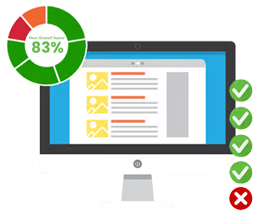Simplifying Online Payments: A Comprehensive Guide for Business Owners

As a business owner, you might have considered the potential advantages of accepting online payments via your eCommerce website. Despite its apparent complexity, particularly if you are not technologically inclined, understanding this process is simpler than you might think. This post is designed to explain online payments and guide you through setting up a payment gateway, using language that is easy for a non-technical business owner to comprehend.
Understanding Payment Gateways
A payment gateway can be thought of as a digital point of sale in your online store. It is a secure tool that processes and authorises payments for online businesses, functioning in much the same way as a physical EFTPOS machine in a bricks-and-mortar store, with the specific purpose of managing online transactions. In essence, a payment gateway is a conduit between an eCommerce website's shopping cart and the financial institutions that process the transaction, the Payment Service Provider (PSP).
The Importance of a Payment Gateway
A trustworthy payment gateway is a fundamental component of successful eCommerce website design. Beyond its ability to process and accept credit card payments online, it also protects your customers' sensitive information. In our digital age, the security of online data is paramount and a payment gateway plays a critical role in maintaining this security.
Choosing the Appropriate Payment Gateway
The selection of a suitable payment gateway for your business can initially appear challenging. However, by considering factors such as domestic and international transaction fees, the range of payment methods offered, security protocols, currencies accepted and compatibility with your website, you can make an informed decision. Reputable payment gateways, each with their own unique benefits and costs, include (but not limited to):
- Bendigo Bank
- CBA bPoint
- eWAY
- Merchant Warrior
- NAB Transact
- PayPal & PayPal Express
- SecurePay
- Stripe
- Westpac MiGS
- Westpac PayWay
- Zip Pay
Implementing a Payment Gateway: A Step-by-Step Guide
1. Explore Your Options
Begin by comparing different payment gateways to understand what each provides and the associated costs. Take into account the specific needs of your business and your customers. If, for instance, you have international clientele, you might need a gateway that accepts international cards, transactions or a variety of currencies.
2. Registration
Once you've chosen a payment gateway, the next step is to create an account. This process typically involves providing personal and business-related information, such as your business's ABN and your contact details.
3. Configure Your Settings
Upon completion of your registration, you'll need to customise the gateway according to your business requirements. This might include establishing your preferred payment methods, selecting a transaction fee structure, and setting security protocols.
4. Integration
After setting up your payment gateway, the next step is integration with your eCommerce website. Although this may sound like a complex task, our eCommerce platform has many Payment Gateways already built in so just Contact Us and we can make it all happen without fuss.
5. Testing and Launching
Prior to accepting payments, it is crucial to thoroughly test the system to ensure functionality. This can be accomplished through test transactions. Once you are confident that the system is operating smoothly, you are ready to begin accepting online payments!
To Summarise
The complexity of online payments and eCommerce can be navigated with ease. With a carefully chosen payment gateway and an expertly designed website, you can provide a seamless shopping experience for your customers. Furthermore, if you require assistance, Contact Us and let us aid in making your online business a success. With the right tools and support, your online shop can take your business to new heights.



